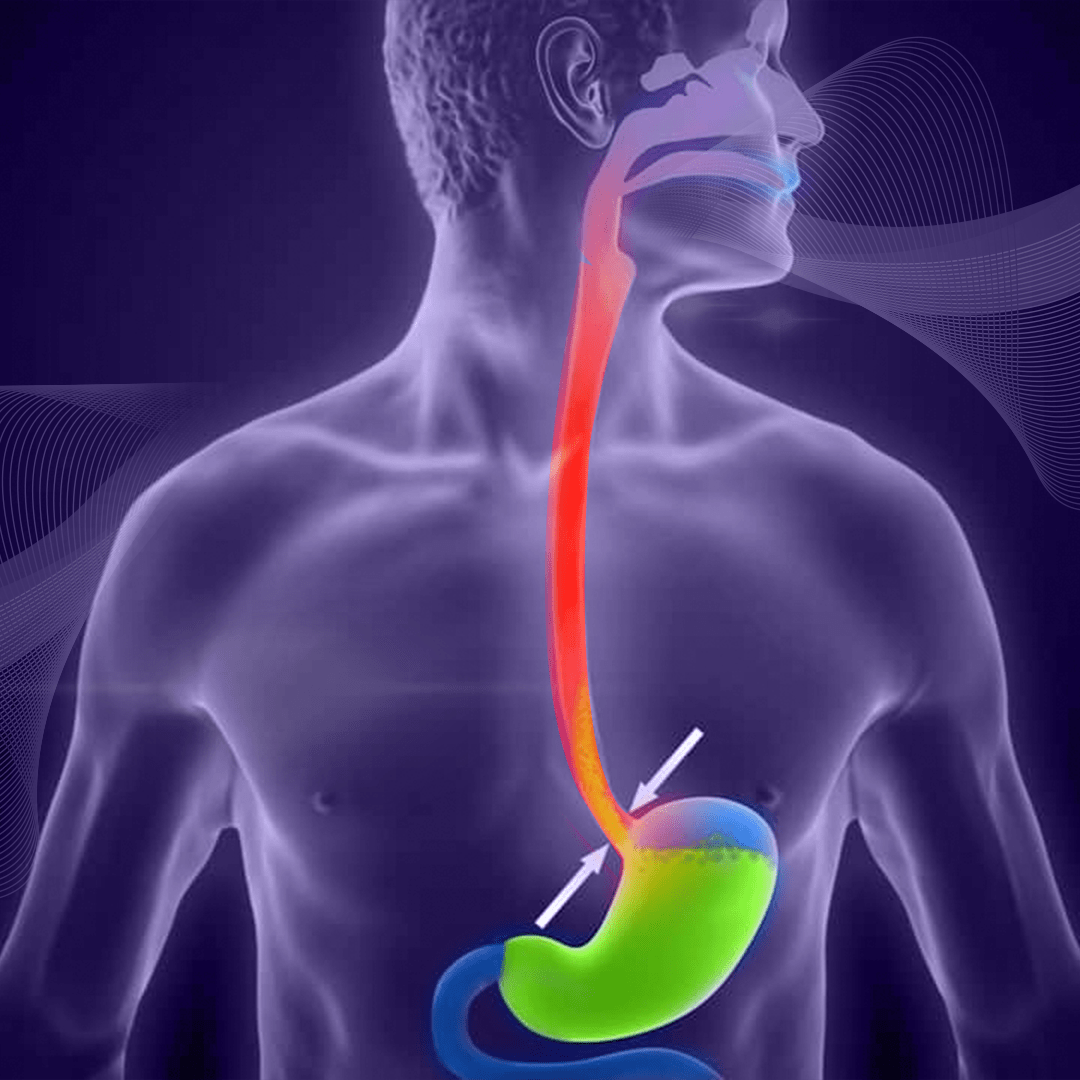
If you experience any of the following symptoms:
Heartburn in the middle of the chest, a sour taste in the mouth after eating, frequent bloating, annoying burping, a dry cough with no clear cause, morning hoarseness, upper abdominal pain, tightness in the chest that worsens when lying down, unexplained bad breath, difficulty swallowing, or disturbed sleep after meals,
you may be suffering from Gastroesophageal Reflux Disease (GERD), one of the most common gastrointestinal disorders in the Arab world.
This condition might seem mild at first, but if neglected, it becomes a constant source of discomfort that affects your sleep, appetite, mood, and even daily productivity.
GERD occurs when stomach acid and food flow back into the esophagus due to weakness in the lower esophageal sphincter (LES), which normally acts as a gatekeeper to prevent acid reflux.
When this sphincter weakens, stomach acids rise to irritate the lining of the esophagus, causing chronic inflammation and symptoms that worsen after meals or when lying down.
GERD is usually diagnosed based on medical history and physical examination. The doctor may request additional tests such as:
Treatment begins with lifestyle modification, followed by medication, and in some cases, surgical intervention may be required.
In resistant or advanced cases, Nissen Fundoplication surgery may be recommended to strengthen the sphincter and prevent reflux.
Early diagnosis by a gastroenterologist is the best investment for your health, finances, and peace of mind.
Avoid any unproven treatments, including herbal remedies, home mixtures, or internet “recipes,” as some may worsen the condition or harm the liver and kidneys.
The safest path is evidence-based medical treatment under the supervision of a qualified specialist.
Start with a simple step: observe your symptoms, change your habits, and don’t delay your doctor’s visit.
If you are experiencing these symptoms or suspect you have GERD, I can help you arrange the necessary tests and consultations with specialized doctors to ensure your health before the condition worsens.
Book an appointment with a Gastroenterology & Hepatology Consultant
🔗 Share this article via: